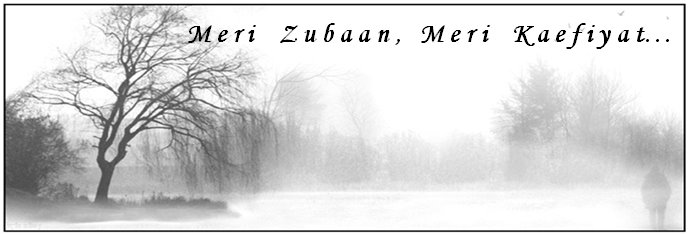 Every year the Oxford dictionary announces a list of words that gets absorbed into the English vocabulary. The words, coming from various languages, are so popular in their usage that it deems only logical to formalize their inclusion into the Queen’s language. While the English language grows and becomes a mirror of the global English speaking populace, the same applies to other languages. However regional a language be it continuously picks up pariah words that trade mouths and ears with increasing frequency and keeps up its pace with the changing times. The language, Hindi, is no exception.
Every year the Oxford dictionary announces a list of words that gets absorbed into the English vocabulary. The words, coming from various languages, are so popular in their usage that it deems only logical to formalize their inclusion into the Queen’s language. While the English language grows and becomes a mirror of the global English speaking populace, the same applies to other languages. However regional a language be it continuously picks up pariah words that trade mouths and ears with increasing frequency and keeps up its pace with the changing times. The language, Hindi, is no exception. There might not yet be an official body for the Hindi language to exalt the status of a word to Hindi’s esteemed vocabulary, but a general acceptance of a word is good enough to make it a part of common parlance. What is ‘general’ acceptance? It’s the use of such a word in popular media thereby making a word de facto member of the vocabulary. This is, indeed, a very good method of making a language more inclusive and representative of the character of a nation, and for a nation as large and diverse as India a language like Hindi, fast absorbing flavors from various parts can only bring in a sense of oneness.
But what happens if the growth of a language is tempered by commerce? Does commerce warrant enough responsibility and concern over the social impact of a word when included in the vocabulary of a language?
Movies and the entertainment industry, meeting ground of commerce and popular media, have had an impact which needs no verification. But are there enough regulations (even self-regulations) in place within the industry to check its potentially harmful effects on society? There have been such debates earlier, most notably the one where actors were asked to shun the use of cigarettes and other such stuffs to keep youths away from getting influenced. I believe it’s a matter of choice of an individual and art should not be stifled merely if the will and intelligence of an individual cannot help him or her to make an informed choice. However, when it comes to a language, the matter acquires a different dimension.
Lately, there has been a profusion of songs where words, which at best qualify as vulgar (or even abusive), have made their way into songs. One such song – Pappu can’t dance sala, got AR Rahman the Filmfare award. Rahman had the good sense of admitting that the choice of words in the song wasn’t much to his taste and was thus hesitant to compose the music for it; nevertheless, the song with its peppy music became a chart buster and today is identifiable with the youth. There’s another one – Sala tu to kaam se gaya. There are many more examples of similar ‘item numbers’, like Ishq Kameena, which have become almost a regular feature in the movies. This growing acceptance is worrisome and is resulting in even bolder, louder and vulgar products from the industry. If one thought that such words were limited only to songs then it’s time to update oneself with the name of a much anticipated movie – Kameeney. Even while we ‘eagerly’ await this movie to release, the latest movie to hit the screens, Kambakht Ishq, has taught us new words of endearments for our blue-eyed boy and girl - ‘dog’ and ‘bitch’.
It is just a matter of time when the legitimacy accorded to this decadence by public figures, helps garnish dinner table conversations with words picked up from songs and other sources, and mama, papa, beta and beti gleefully exchanging invectives along with pickles and bread.
An ‘awakened’ media often imposes checks using technology (read ‘mute tone’ or pixilated screen) to prevent the audience to see or hear what is objectionable. But they often take liberty of these very methods to show more of objectionable content. An example is the prolific use of ‘mute tones’ in reality shows like ‘MTV Roadies’. There exists a perception helped by what is shown during the interview sessions and during rest of the show, that possession and appreciation of a ‘good vocabulary’ often helps one’s chances of becoming a Roadie. Case in point is a participant, who almost managed to win the show, and is now one of the ‘celebrities’ who will be taking part in a new reality show from Sony – Mujhe iss jungle se bachao. If ‘Roadies’ is a program for youth and this is how the youth of today talks and behaves then the entire idea of promoting such a show is highly revolting. What is even more disturbing is the passive reception of the unchecked media taking center stage in our lives and the growing tolerance towards this by the younger generation that is besotted by the romance of a fast-paced life and a ‘chalta hai’ attitude.
I would disagree if the tone and tenor of words above sound orthodox because it is a matter of grave concern if a language is allowed to be sullied by words driven by commercial interest. Words and expressions laced with sexual innuendos or otherwise outright invectives are so easily slipping into public consumption, courtesy media, that imagining literature of class and beauty in future would reduce to an academic exercise and not a reality.
